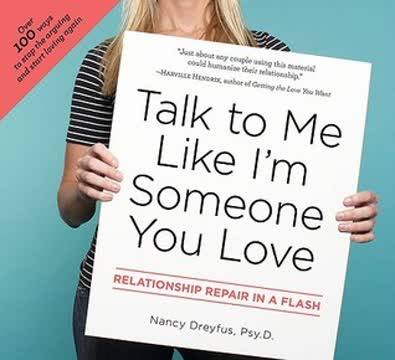Key Takeaways
1. Shift from Content to Connection
The real arena—how the two of you are treating each other in the moment.
Focus on context. When relationships hit a snag, our natural inclination is to fixate on the content of the disagreement—who did what, who said what, whose fault it is. However, true repair happens when we shift our attention to the context: the underlying emotional atmosphere and how we are treating each other. This means recognizing that the argument about a forgotten prescription or a smart-ass remark isn't the real problem; it's the unfriendly energy that has taken over.
Beyond words. Even if we articulate our points perfectly or try to "make nice," if the genuine feeling of connection is missing, the longing for intimacy persists. The book's origin story, where a therapist handed a husband a note saying "Talk to me like I'm someone you love!" during a verbally abusive session, illustrates this perfectly. The wife's immediate softening wasn't about the words of the argument, but the contextual shift the note created, reminding them of their underlying bond.
Restore goodwill. The goal isn't just to resolve the immediate issue, but to restore goodwill and intimacy. This shift acknowledges that problems are near impossible to solve if the energy between partners feels more adversarial than friendly. By consciously choosing to address the how of the interaction, rather than just the what, couples can transform unproductive, mean, or simply crummy interactions into moments of genuine connection and mutual respect.
2. Vulnerability Disarms Conflict
As long as I stay in the self-protective mode I adapted to in my family of origin, I will never really feel close to you or make it safe for you to feel close to me.
Embrace vulnerability. Intimacy cannot flourish if we remain in self-protective modes, guarding our inner selves from our partners. The flash cards in this section are designed to help loosen the grip of self-protection, allowing us to share feelings like insignificance, weakness, neediness, or awkwardness—states often deemed "icky" but are, in fact, beautifully human. This conscious choice to be vulnerable, rather than defensive, is a powerful act of courage.
"Feeling felt" is key. Our deepest childhood needs often revolve around being seen, heard, and affirmed. When we express our vulnerability, we are seeking to be "felt" by our loved one—to have our experience acknowledged and understood without judgment. This is a profound need that, when met, can defuse tension and foster emotional closeness, even if the initial issue isn't fully resolved.
Therapeutic impact. Sharing feelings like "I feel small" or "I'm afraid to be real with you" can have a therapeutic effect. It brings our inner experience into the open, allowing our partner to see us more accurately and respond with empathy. This act of transparency not only strengthens the bond but also helps us shed internalized self-judgment from past experiences where our vulnerability might have been dismissed or mishandled.
3. Own Your Impact
To take ownership of your overreacting or your relentlessness or your scariness—or even to take ownership of the possibility that you have a blind spot regarding your impact on your partner—is a beautiful and healing thing.
Acknowledge your role. Conscious relationships require an awareness of four things: how I feel, how you feel, how I look to you, and how you look to me. We are often adept at the first two, but struggle with understanding our impact on others. Taking responsibility means acknowledging how our behavior—whether it's anger, defensiveness, or even just a "blind spot"—affects our partner. This act of ownership is a cornerstone of building trust.
Beyond justification. It's easy to justify our anger or reactions by pointing to our partner's actions. However, true responsibility means recognizing that our reactions, even if provoked, can be destructive. For instance, saying "I can see that my anger has been destructive and that I've really hurt you" shifts the focus from who is "right" to the harm caused, fostering understanding rather than further conflict.
Humility and healing. Admitting "I realize I'm overreacting" or "I know I've been relentless" requires humility but yields immense relational benefits. It signals to our partner that we value the relationship more than our position or pride. This self-awareness and willingness to correct course can quickly transform a tense situation, making it safe for both parties to re-engage and rebuild connection.
4. The Power of the Written Word
There was some special power in a written message to heal a relationship rupture—but what was going on I wasn’t exactly sure.
Neutralize tone. In the heat of an argument, verbal messages, even conciliatory ones, can be undermined by tone of voice—real or imagined. A "sincere" apology might be heard as sarcastic, or a genuine request as an accusation. Written messages bypass this issue, delivering the message cleanly and allowing the receiver to process it without the added layer of vocal interpretation.
Signal sincerity. The act of pausing an argument, finding a specific flash card, and presenting it demonstrates a conscious effort to repair. This effort itself is often perceived as a profound relational act, signaling:
- A willingness to drop defenses and pride.
- A prioritization of the relationship over one's position.
- A desire for closeness.
- A shift towards being a more giving person.
Break the cycle. When partners are locked in a reactive "dance of anger," verbal exchanges often escalate rather than resolve. A written message acts as an "interpersonal showstopper," creating a lucid interval where both parties can step out of their reactive patterns. This novelty and deliberate action can quickly alter body chemistry, reducing hyper-arousal and fostering a sense of safety.
5. Set Limits with Dignity
Simple sanity is often the perfect antidote to insanity.
Stop the spiral. These flash cards act as interpersonal stop signs, designed for moments when interactions feel out of control, frustrating, or even rageful. They offer a clear "No" to escalating negativity, providing a sane alternative to either relentlessly resisting or freezing in the face of a partner's unreasonableness.
Communicate boundaries. Messages like "I'm feeling very scared of you right now" or "You are being a bully" directly address problematic behavior without resorting to counter-aggression. This directness, delivered through a written card, can instantly calm the receiver by transforming the sender from a perceived adversary into someone vulnerable yet firm, leveling the psychological playing field.
Reclaim self-respect. When one feels compelled to "walk on eggshells" around a partner, it's a form of agony that erodes self-respect. Using a card like "I hate feeling that I have to walk on eggshells around you" is an act of self-alignment. It communicates a need for safety and authenticity, inviting the partner to recognize their impact and adjust their behavior, ultimately creating a safer space for both.
6. Clarify Assumptions, Build Trust
There is no relationship that couldn’t benefit from about 250 hours of serious reality-testing.
Challenge assumptions. In moments of tension, our minds often create elaborate narratives about what our partner is thinking or intending. These "characters in your head" can be more frustrating than the actual person. Flash cards in this section encourage direct reality-testing, prompting partners to clarify their intentions and address unspoken fears, rather than letting anxieties fester.
Seek direct answers. Instead of agonizing over implied threats or perceived disrespect, these cards empower individuals to ask direct questions. For example, "When you treat me this way, it feels like you don't respect me. Is that true?" or "When you say things like that, it sounds like you are thinking of ending our relationship. Is that what you really mean?" This approach reclaims dignity and requires the partner to take responsibility for the vibes they are emitting.
Uncover hidden meanings. Often, a partner's seemingly illogical or disproportionate reaction stems from deeper, unaddressed issues. Asking "What can I say that would make you feel understood?" or "Are you in the space to talk?" demonstrates a genuine desire to connect and understand, even if the initial communication was unclear. This commitment to understanding, rather than just being understood, is crucial for deepening trust.
7. Apologize with Sincerity
I deeply appreciate a sincere apology because it is such a beautiful expression of both vulnerability and responsibility-taking—I feel loved because my guy is willing to own something less than honorable about himself with the intention of keeping himself clean.
Beyond "I'm sorry." While a simple "I'm sorry" is a start, a truly sincere apology goes deeper. It acknowledges the impact of one's actions, expresses genuine remorse, and often includes a willingness to understand the hurt caused. The written format of "I'm sorry" can carry more weight than a verbal one, signaling a deliberate act of penance and a desire to repair the breach.
Rebuild trust. When a partner has been genuinely hurt, the most urgent need is to repair the rupture in trust. Messages like "I know I've really hurt you. What can I do that would help you trust me again?" demonstrate an understanding of the gravity of the situation and invite the injured party to participate in designing a path forward. This collaborative approach to healing is vital for long-term relational health.
Own the "mean piece." Sometimes, our words are not just "candid" but genuinely hurtful. Acknowledging "I know what I said was hurtful. I truly didn't mean it and would do anything to take it back" is crucial. It separates the hurtful comment from any perceived "truth" and focuses on the damage done. This act of owning the "mean piece" and expressing regret, rather than justifying, is a powerful step towards reconciliation and self-integrity.
8. Reaffirm Love Amidst Discord
There are very few bad things you or your partner could do that would ever have more valence than your belief that both of you deserve to be treated lovingly, despite it all.
Love as a foundation. Even in the midst of conflict, reminding each other of the underlying love and commitment can transform the interaction. Messages like "I love you. And despite how it looks, I don't want our relationship to be a fight" acknowledge the current unpleasantness while reaffirming a shared vision for a kinder relationship. This helps both partners remember that the fight is a temporary state, not the entirety of their bond.
Beyond the surface. Often, arguments mask deeper desires for connection and reassurance. A card like "Right now, I'd do anything for you to know how much I love you" isn't meant to magically resolve the issue, but to infuse the interaction with goodwill. It communicates that despite the current frustration, the core relationship is strong, and the disagreement is a difference, not a tragedy.
Treasure the bond. Simple, heartfelt declarations like "I treasure you" can cut through layers of tension and defensiveness. These messages remind partners of their inherent value to each other, fostering a sense of security and appreciation. This deliberate act of loving, even when it feels difficult, reinforces the idea that the bond between you is more fundamental than your differences, paving the way for genuine reconciliation.
9. Navigate Intimacy with Transparency
Worrying out in the open will have you liking yourself and your partner more. Which is why the best making love flows from first making nice.
Address unspoken worries. Sexual intimacy can quickly become fraught with unspoken anxieties, turning natural pleasure into awkward duty. These flash cards aim to bring these worries into the open. Whether it's concern about being out of sync, feeling used, or anticipating conflict, addressing these issues transparently can transform potential anti-aphrodisiacs into opportunities for deeper connection.
Communicate desires clearly. Many sexual disconnects stem from assumptions or a reluctance to articulate desires. For instance, "I'd love it if we could go slow" directly communicates a need, rather than expecting a partner to intuit it. This clarity, especially from women who may have learned to prioritize their partner's perceived desires, fosters mutual consciousness and ensures that intimacy is a shared, responsive experience.
Beyond appeasement. Sex should not be used as a tool for appeasement or to avoid conflict. Messages like "I know I behaved badly, but I don't want to have sex just to make it up to you. Can we clear things first?" or "My pattern is to make love to keep you from being upset with me. Let's do it differently this time" advocate for authentic connection over transactional intimacy. This commitment to emotional honesty ensures that physical intimacy is rooted in genuine desire and resolved feelings, deepening the overall bond.
10. Recognize Past Wounds
I am not _______________, who hurt you in the past. I am _______________, who loves you now.
Unfinished business. Our capacity to project past experiences onto present relationships is infinite. Unmet childhood needs or unresolved traumas from previous relationships often resurface, causing us to misinterpret our partner's actions through a distorted lens. This flash card directly addresses this "transference," helping partners differentiate between past hurts and the present reality of their loving relationship.
Update reality. When a partner reacts to you as if you were a critical parent, a neglectful ex, or a disloyal friend, it's crucial to help them update their reality. By filling in the blanks—"I am not [past hurter], who hurt you in the past. I am [your name], who loves you now"—you provide a clear, compassionate distinction. This helps your partner see you for who you are, rather than a projection of someone else.
Compassion for patterns. Recognizing that a partner's "parent-like" behavior or "overreaction" might stem from their own childhood wounds fosters compassion. Flash cards like "I'm probably [sounding…looking…carrying on] like your mother right now, and I can appreciate how [frightening…disturbing…annoying] that must be for you" demonstrate self-awareness and empathy. This acknowledges the historical context of their reactions, making it safer for both to break free from old, unhelpful patterns.
Last updated:
Review Summary
Talk to Me Like I'm Someone You Love received mixed reviews, with readers appreciating its practical advice and specific phrases for improving communication in relationships. Many found the flashcard concept helpful, though some questioned its practicality in real-life situations. Positive aspects included actionable tips and compassionate approaches to difficult conversations. Criticisms focused on outdated gender roles, overuse of certain terms, and the book's structure. Overall, readers found value in the book's insights on emotional intimacy and conflict resolution, despite some limitations.
Similar Books
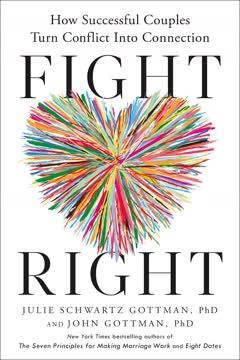
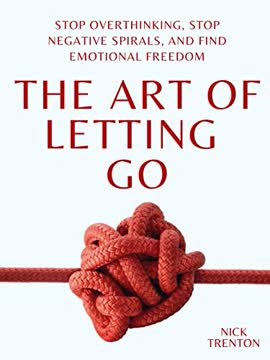

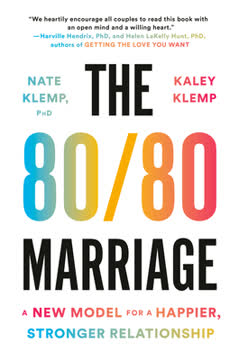
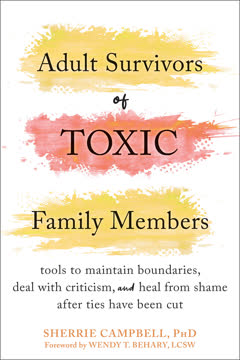
Download PDF
Download EPUB
.epub digital book format is ideal for reading ebooks on phones, tablets, and e-readers.
